Kasabay ng pagdiriwang ng Ika-160 kaarawan ni Gat. Andres Bonifacio, makikita ang mga militanteng grupo na nagsagawa ng malakihang kilos- protesta sa lansangan mula sa Kalaw Avenue patungo sa Embahada ng Estados Unidos sa Roxas Blvd. bago ito nagtapos sa Mendiola, Maynila.
Sinubukan ng mga grupo na makalapit sa Embahada ng Estados Unidos, ngunit hinarang agad sila ng mga guwardya at ng mga tauhan ng Manila Police District.
Bitbit ng mga militanteng grupo ang malalaking placard kung saan nakasulat ang kanilang mga hinaing at sigaw-panawagan sa administrasyong Marcos.
Hiling nila na mabigyan ng mabilis at konkretong solusyon upang itaas ang suweldo ng mga manggagawa at maiahon ang bansa mula sa kahirapan.
Tunghayan ang video ng iba’t ibang militanteng grupo na kinabibilangan ng Bagong Alyansang Makabayan, Kilusang Mayo Uno, Bukluran ng Manggagawang Pilipino, Alliance of Genuine Labor Organizations, National Confederation of Labor, All Workers Unity, Transport Groups, at mga grupo ng kabataan.
(Benjamin Cuaresma/ai/mnm)
MANILA — President Ferdinand R. Marcos Jr. urged the Filipino populace to draw inspiration from Andres Bonifacio’s unwavering heroism and profound love for the nation during the commemoration of the revolutionary leader’s 160th birth anniversary at the Bonifacio National Monument in Caloocan City.
In his address, Marcos emphasized that heroism is a natural trait for those whose hearts are fueled by love, concern, and understanding for their people and country. He highlighted the modern heroes among Filipinos, including nurses, doctors, teachers, police, military personnel, and overseas Filipino workers.
“Ilaan natin ang araw na ito upang pangaralan si Gat Andres Bonifacio at ang kanyang kontribusyon sa pagtataguyod ng ating pagkakakilanlan bilang Pilipino. Bukod dito, inaanyayahan ko rin ang bawat isa na tularan ang kanyang kabayanihan at pagmamahal sa bayan at ipakita ang mga ito sa ating mga pang-araw araw ng gawain,” Marcos conveyed, encouraging everyone to spend the day honoring Bonifacio and embodying his love for the country in daily actions.
Marcos emphasized the pivotal role each Filipino plays in advancing the Philippines, underscoring the importance of everyone’s participation in enriching the country’s culture, economy, and society as part of his administration’s vision for a “new Philippines.”
He encouraged Filipinos to emulate Bonifacio’s role as a beacon of hope and inspiration for their fellow countrymen, stating, “Sa diwa ng bayaning si Gat Andres Bonifacio, tayo ay tinatawag hindi lamang na ialay ang ating buhay para sa Inang Bayan kundi pati na ang pagbuhos ng ating kahusayan, galing, tapang at oras upang ang bawat hakbang natin ay maging ilaw ng pag-asa at inspirasyon para sa ating mga kababayan.”
Honoring Bonifacio for standing up for principles and defending oppressed Filipinos, Marcos acknowledged the enduring spirit of Bonifacio’s bravery and leadership even after more than a century and a half.
The National Historical Commission of the Philippines led the event themed “Katungkulan at Pananagutan Tungo sa Kaunlaran ng Bayan,” emphasizing the collective responsibility for the country’s advancement.
The Armed Forces of the Philippines joined the commemoration with simultaneous flag-raising and wreath-laying rites, echoing the call to embody heroism in all actions. PA chief Lt. Gen. Roy Galido emphasized the importance of mutual understanding and a unified commitment to contributing to the nation’s welfare and promoting peace within the country’s borders.
As one of the Philippines’ national heroes, Bonifacio’s legacy lives on, co-founding the Katipunan in 1892, initiating the Philippine Revolution, and ultimately securing the country’s independence from Spanish colonial rule in 1898.
(ai/mnm)
On this day in Filipino history (November 30, 1863) Andres Bonifacio, a pivotal figure in the fight for Philippine independence, was born in the vibrant district of Tondo, Manila. His birth marked the beginning of a life devoted to the pursuit of freedom and the establishment of the Philippine Republic.
Orphaned at the tender age of 14, Bonifacio faced the responsibility of caring for his five younger siblings, compelling him to abandon formal education in pursuit of ways to support his family. Despite the absence of formal schooling, he embarked on a self-directed journey of education, voraciously reading books under the flickering glow of a lamp at his home.
Unlike some of his contemporaries who clung to the hope that Spain would heed calls for reform, Bonifacio harbored no illusions. Deep within, he understood that Spain would never grant the reforms demanded by Filipino reformists.
Seizing the moment when news of Dr. Jose Rizal’s deportation to Dapitan spread, Bonifacio, along with individuals like Valentin Diaz, Teodoro Plata, Ladislao Diwa, and Diodato Arellano, founded the Katipunan on July 7, 1892, in Tondo. This organization aimed to secure Philippine independence and freedom through force, solidifying their commitment by signing the Katipunan pact with their own blood.
In the same year, Bonifacio married Gregoria de Jesus, who took charge of confidential files, firearms, seals, and other materials for the society. The discovery of the Katipunan on August 19, 1896, prompted a gathering of Katipuneros at Pugad Lawin, marking the symbolic tearing of cedulas and the commencement of the Philippine Revolution against Spain.
Navigating through evasions, uncertain victories, and severe defeats since the discovery of the Katipunan, Bonifacio found himself invited to Cavite by the Magdalo faction. An assembly convened at Tejeros, Cavite, where Emilio Aguinaldo was elected president, Mariano Trias as vice president, and Bonifacio as secretary of the Interior.
However, tensions arose when Daniel Tirona questioned Bonifacio’s qualifications. Offended, Bonifacio, invoking his authority as the supreme head of the Katipunan, declared the proceedings void and established his own government in Naic, Cavite.
As Spanish forces threatened Cavite, Aguinaldo ordered some key members, including General Pio del Pilar and Mariano Noriel, to leave Bonifacio’s camp. In the face of adversity, Bonifacio, with his family and followers, left Naic for Indang, heading back to Montalban.
Attempting to arrest him, Aguinaldo’s men encountered resistance from Bonifacio. Wounded in the process, he faced a trial for acts against the new government and was sentenced to death by a military tribunal.
Tragically, on May 10, 1897, Andres Bonifacio met his end at the hands of Aguinaldo’s men in the mountains of Maragondon, Cavite. Today, we reflect on the life of this visionary leader who played a crucial role in shaping the course of Philippine history.
Source: Philippine News Agency archives
(Jr Amigo/ai/mnm)
In anticipation of the 160th birth anniversary of Andres Bonifacio, the Philippines Marine Corps conducted a meticulous wreath-laying rehearsal on Friday, November 24, 2023, at the historic Liwasang Bonifacio in Manila.
President Bongbong Marcos Jr. has officially advanced the commemoration of Bonifacio Day, a regular holiday, from November 30 to Monday, November 27, 2023, for a continuous, undisrupted workflow among offices. PBBM at the same time, declared Nov 30 an ordinary working day in accordance with Proclamation No. 90.
Bonifacio Day holds significant national importance, commemorating Andres Bonifacio, a revered hero in the country’s history.
Andrés Bonifacio y de Castro was a Filipino revolutionary leader. He is often called “The Father of the Philippine Revolution”, and considered one of the national heroes of the country.
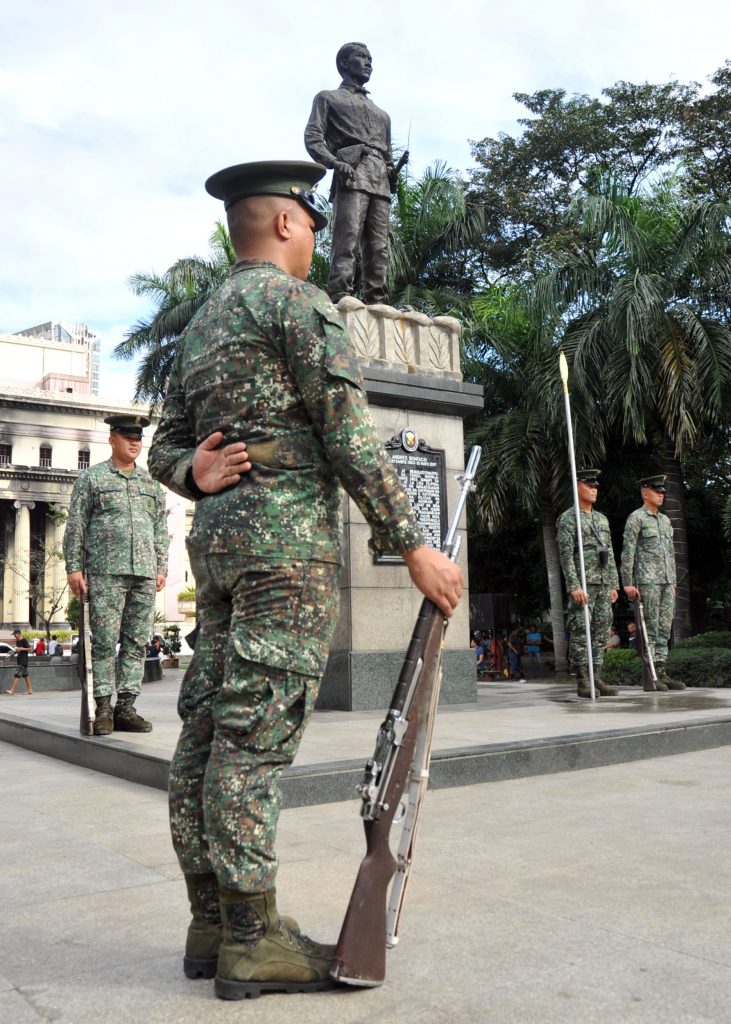
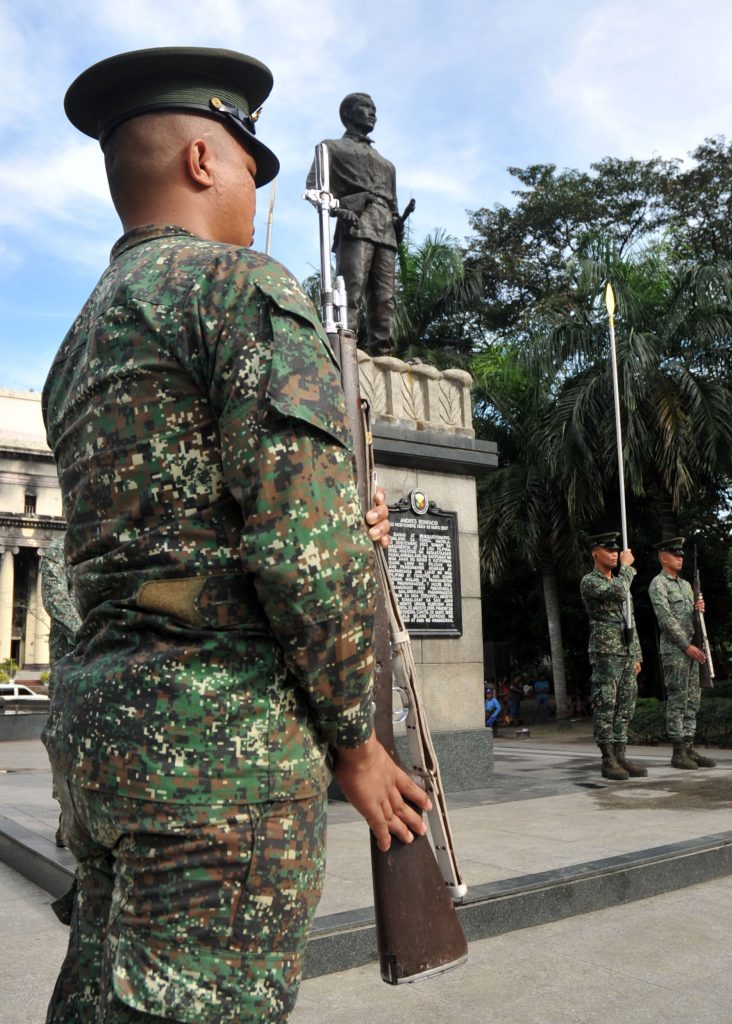
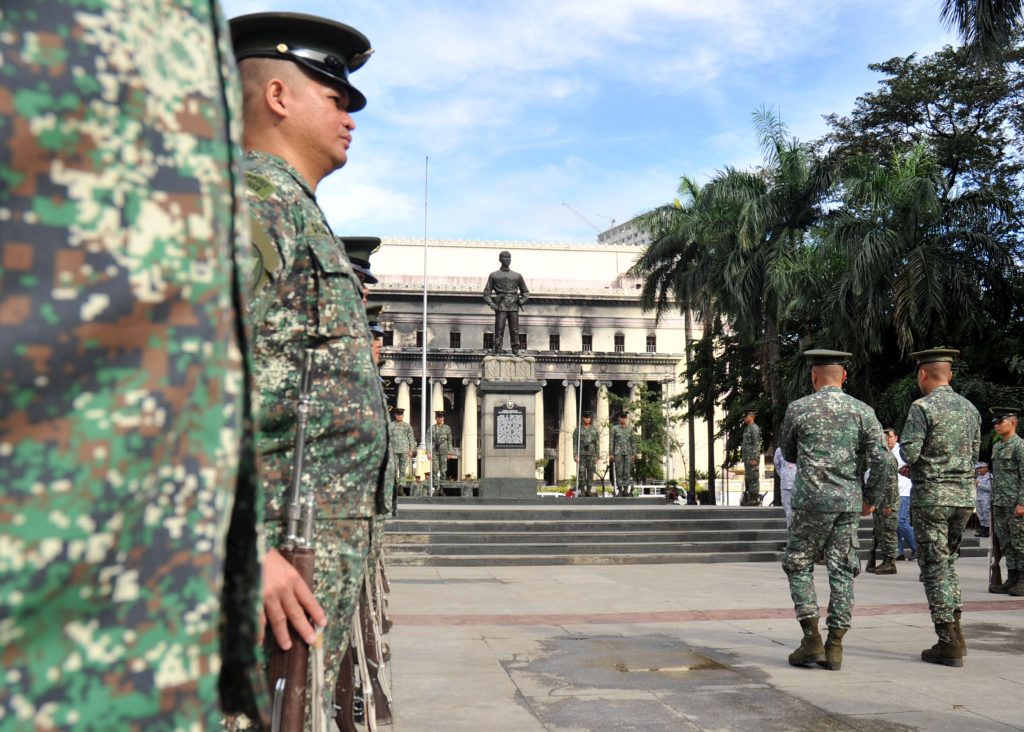
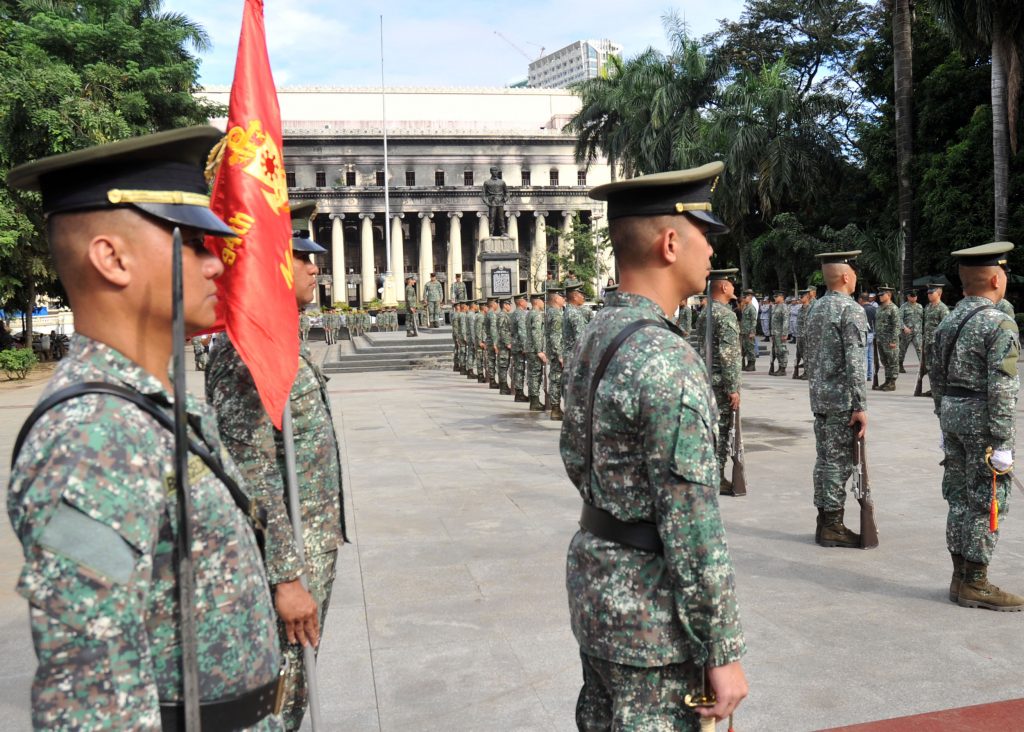
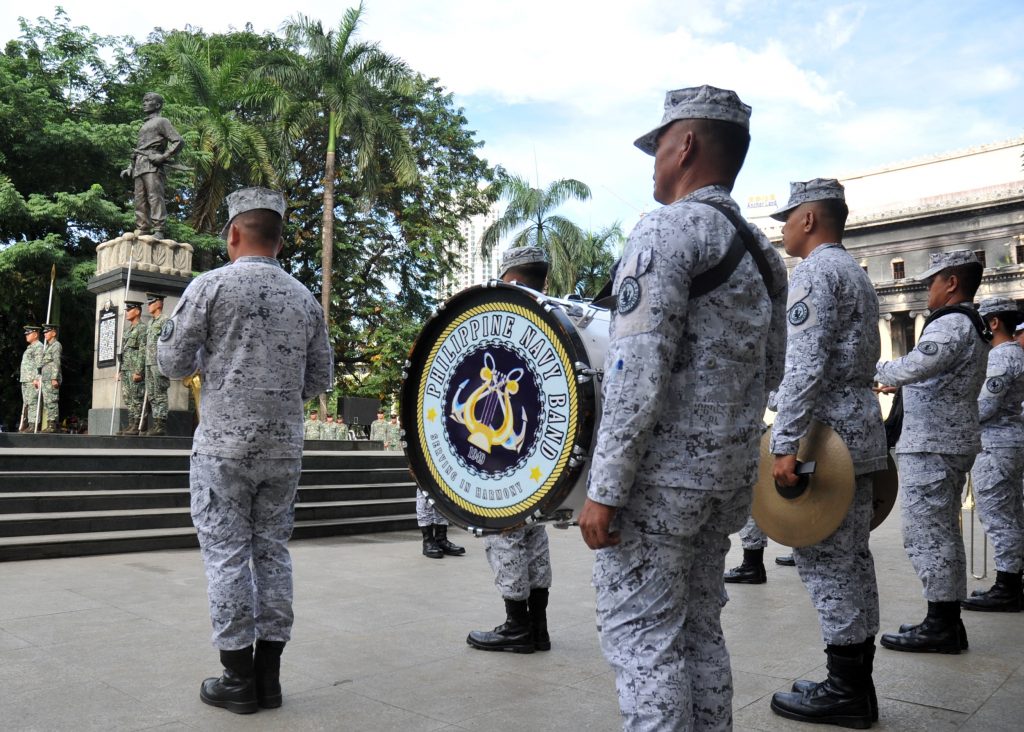
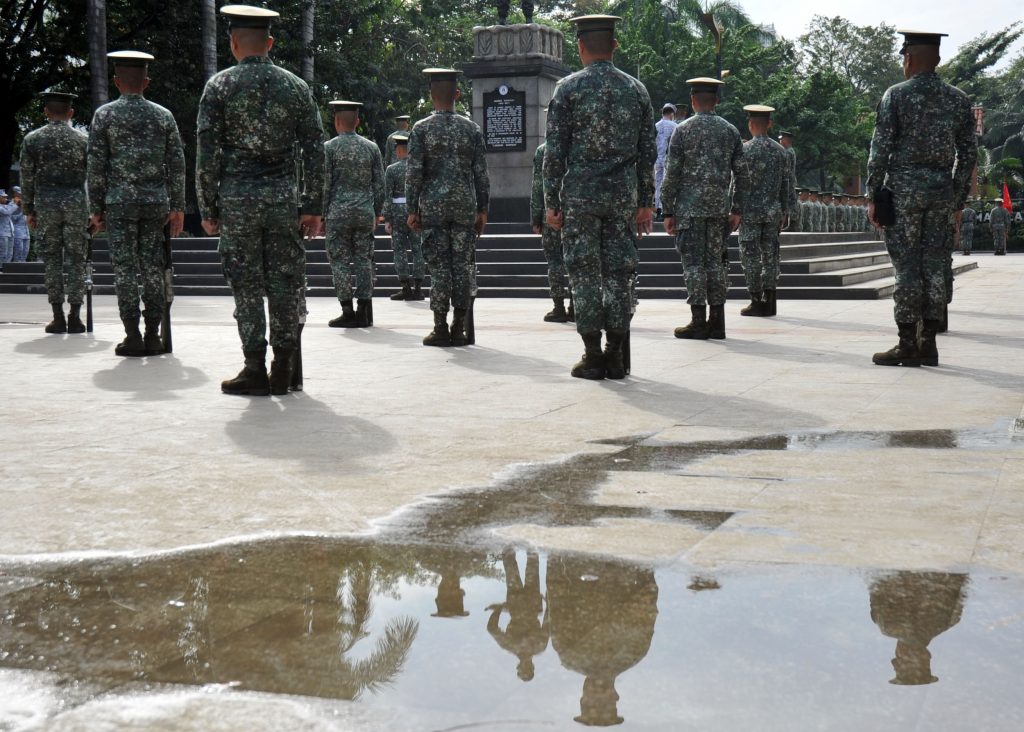
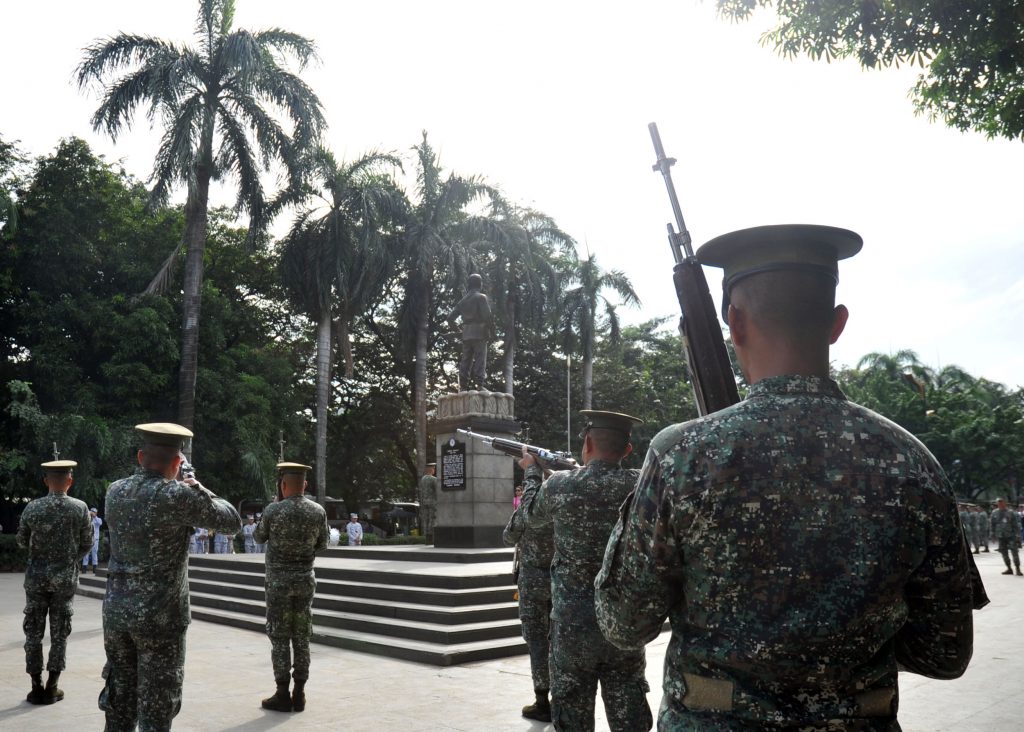
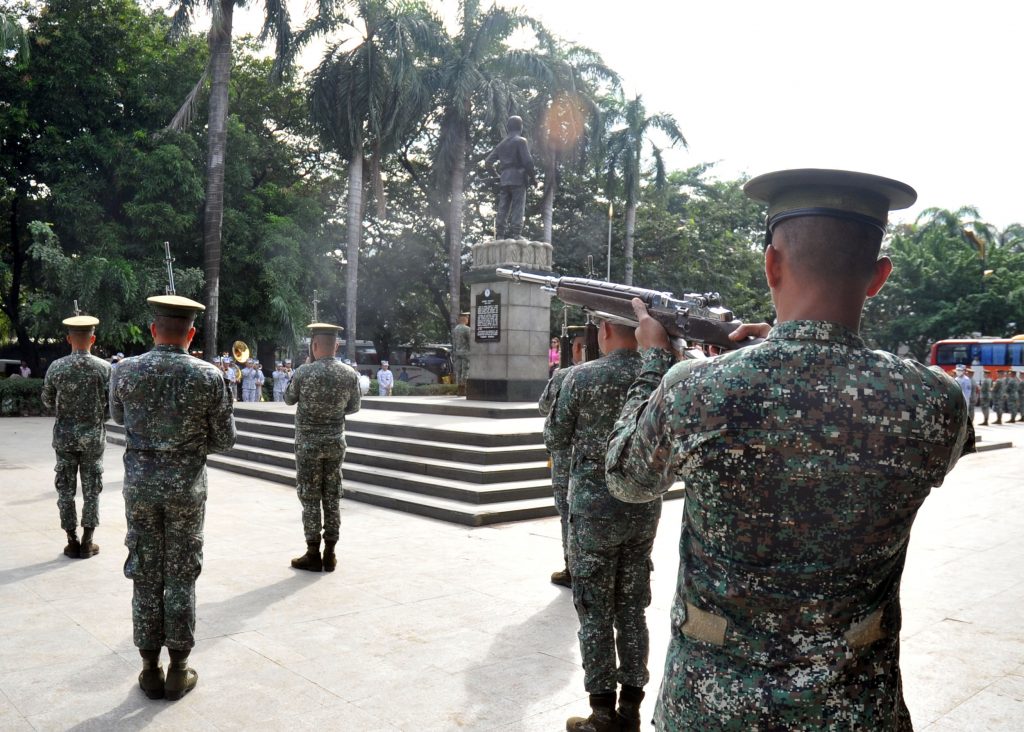
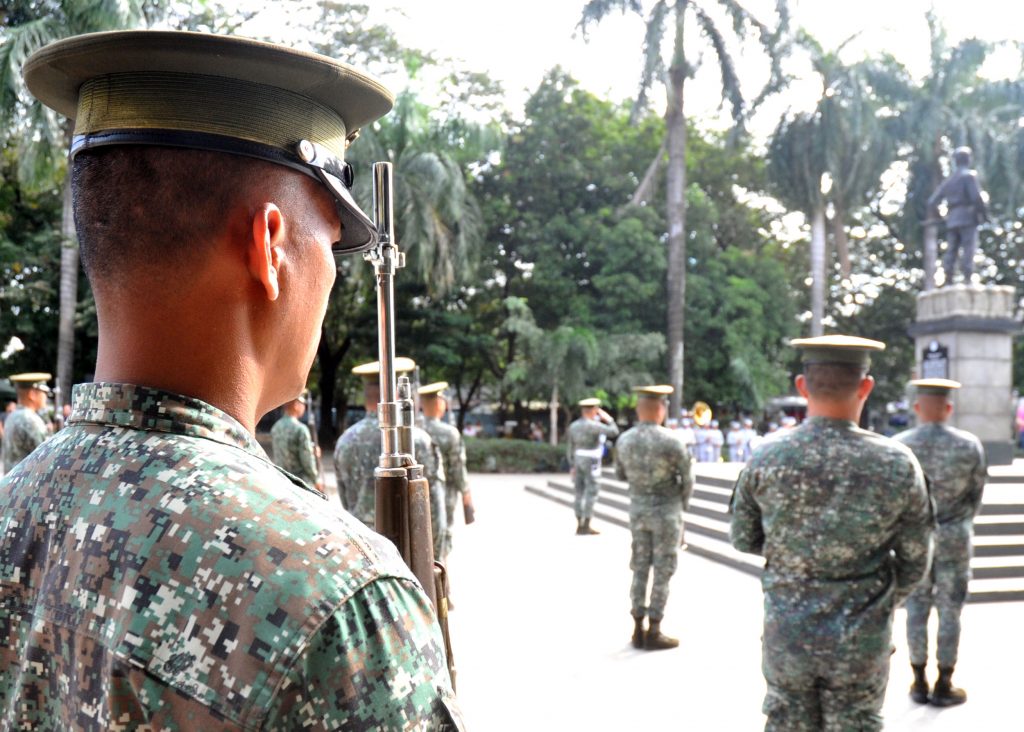
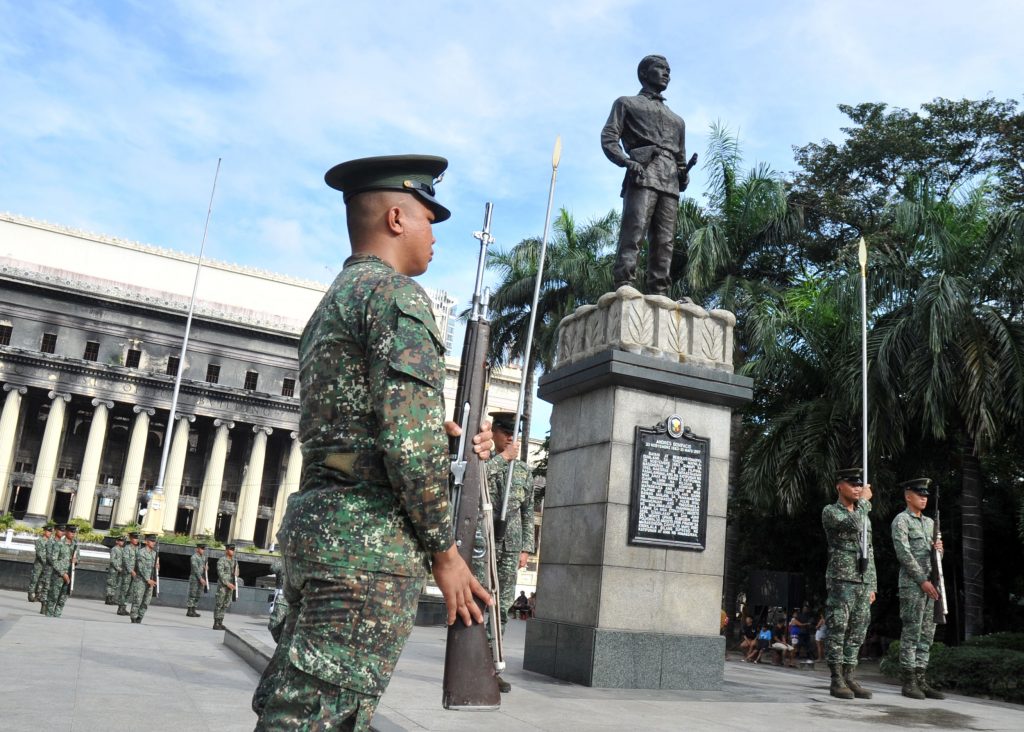
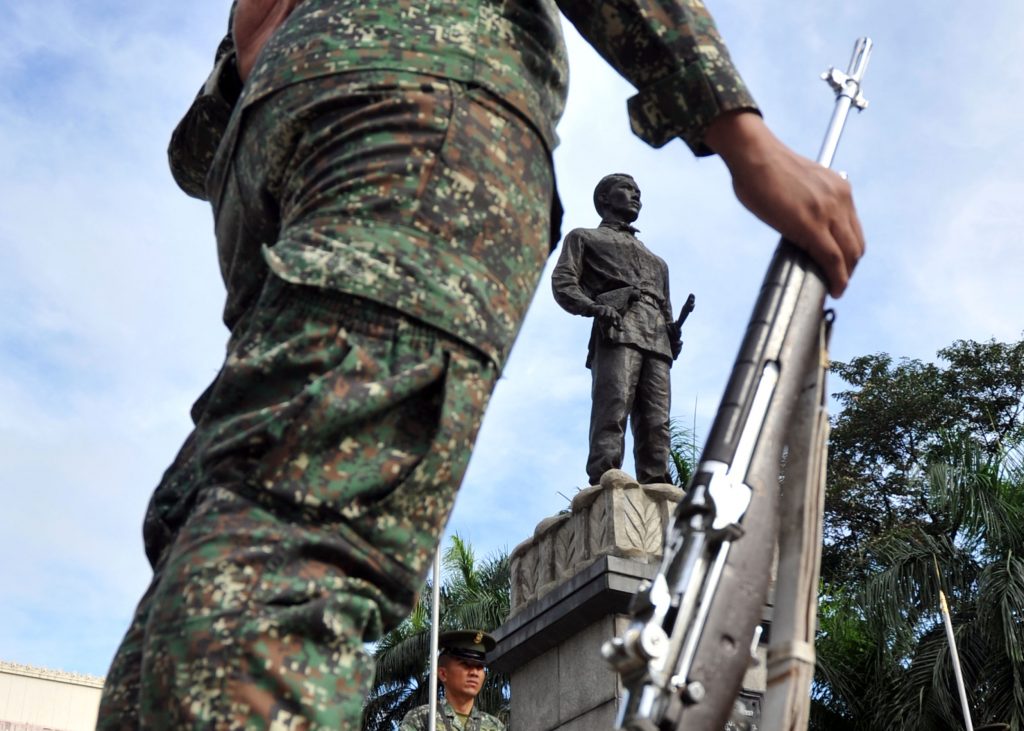
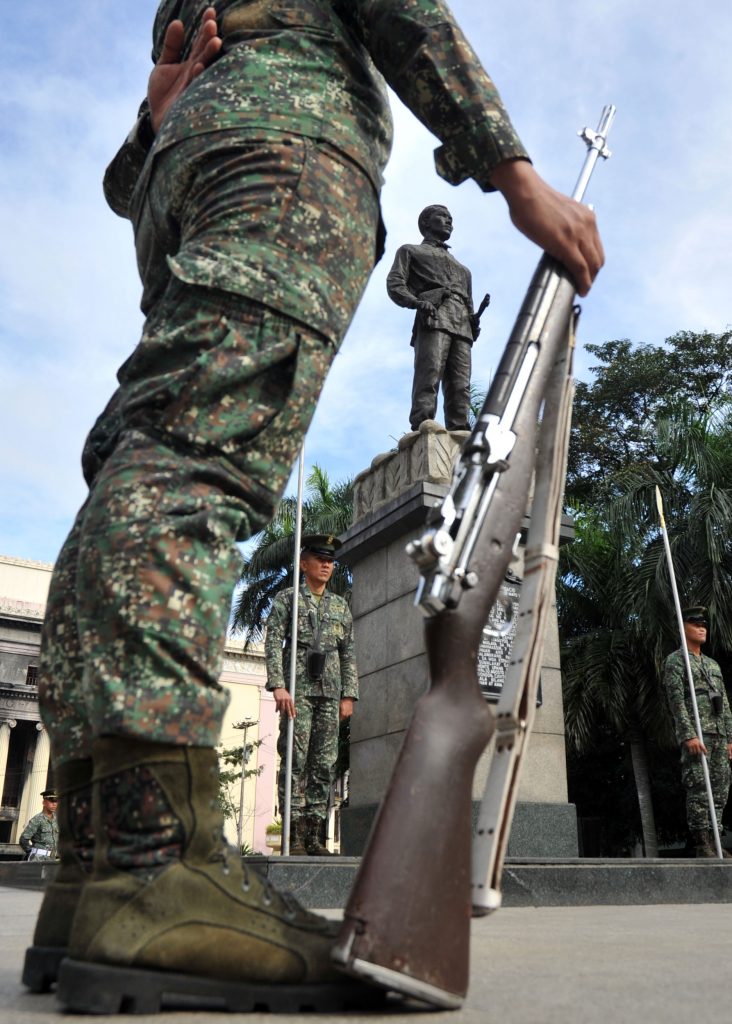
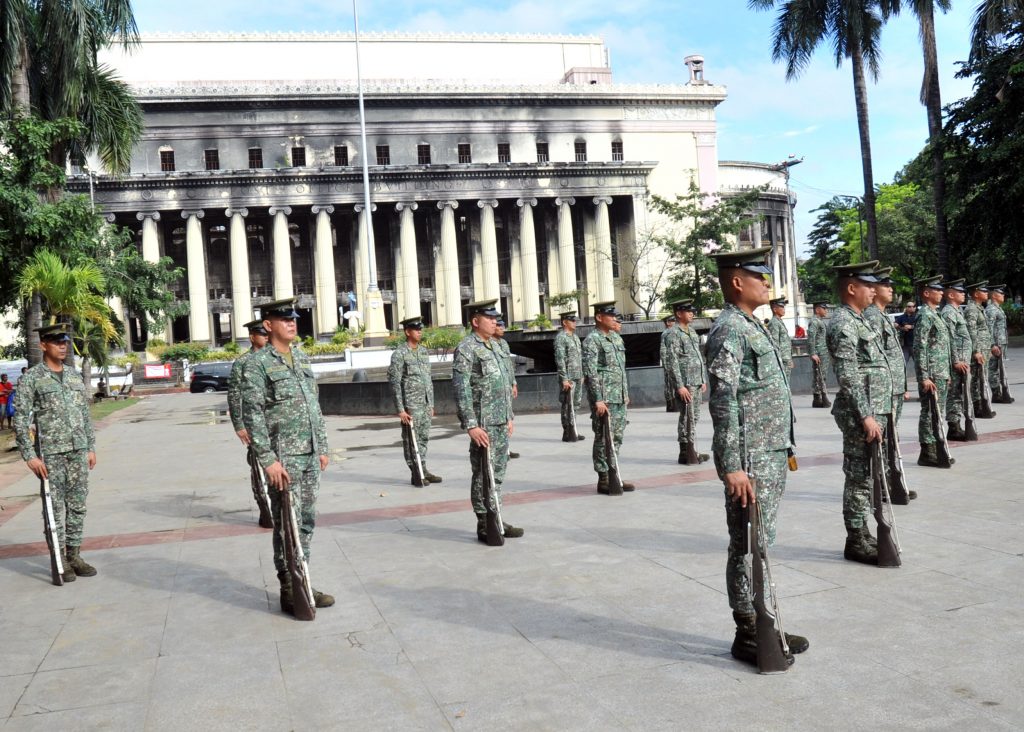
(Benjamin Cuaresma/AI/MNM)
